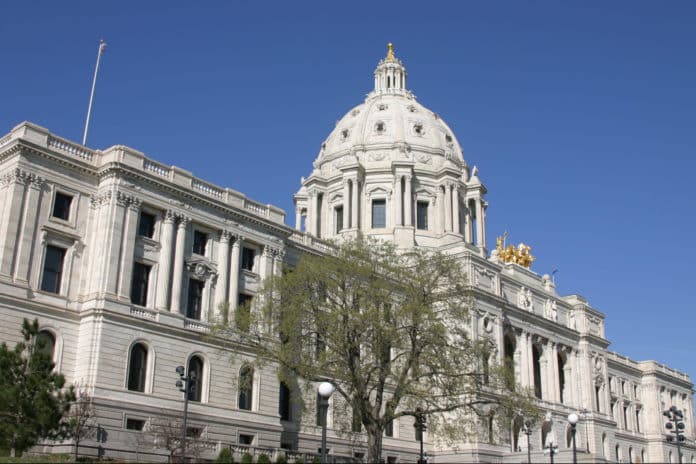Gov. Tim Walz apparently reversed his position on holding a special session after Democrats in the Minnesota legislature failed to accomplish their spending objectives before the regular session convened, Sunday night.
The Minnesota state legislature reached “the proverbial 1-yard line” on a plan to allocate the budget surplus per a press release but failed to “punch it in” before their regular session ended.
On Friday, state leaders took a victory lap, celebrating the framework for a deal that was touted as being effectively complete. At that time, Walz said “deadlines are magical,” indicating an unwillingness to call a special session. However he has since reversed this position saying that legislators shouldn’t “get the ball to the 1-yard line and then go home” as House Democrats call for more time.
“The Minnesota House is ready to come back and get the work done,” Democrat House Speaker Melissa Hortman said.
Republicans, however are apparently not happy with the way deals are evolving in St. Paul and “are not interested in a special session,” per Republican Senate Majority Leader Jeremy Miller.
House Minority Leader Kurt Daudt said a deal hasn’t been reached because “Democrats couldn’t separate themselves from the thirst for additional spending at a time when we have the largest surplus in state history.” Specifically, he accuses Democrats of being unwilling to compromise on funding police and granting tax relief — highlighting how the proposed measures that passed the House generated $21 of additional spending for every $1 of relief.
Although Hortman is using words like “very,” “pretty” and “reasonably” to describe how close the legislature is to wrapping up some of the most contentions deals, Miller paints an entirely different picture.
“What is one or two more days going to do? I don’t get why the governor and Democrats want a special session,” Miller said.
Because Minnesota outlined a two-year budget plan last year and state operations are funded until summer 2023 there is no requirement for the legislature to pass a financial bill right now.
Both bodies of the legislature did, however, approve a $92.7 million mental health package that will fund school-related mental health programs and help mental health providers get out of debt. The package will also fund efforts to assess the “mental competency” of defendants pre-trial.
According to last week’s draft of the deal legislators are trying to piece together, they want to find a way to convert Minnesota’s historic $9 billion surplus into $1 billion of education spending, $1 billion for health and human services, $450 million for public safety, $1.4 billion to local projects via a bonding bill and $1.3 billion towards a category called “other areas as agreed by leaders.” This leaves $4 billion to be converted into tax relief. Republicans are pushing to convert this relief into permanent tax cuts and have suggested that proposals for one time tax relief are intended only to provide positive election year talking points.

















